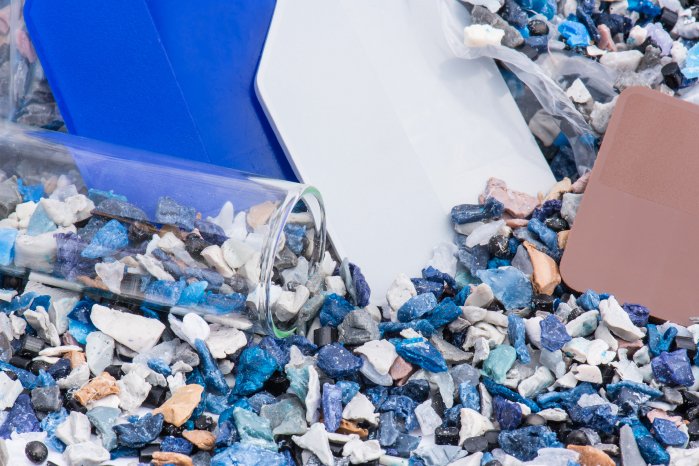Why is more recycled material not being used? How can the use of secondary materials be increased? The Rezy-Spezi project, funded by the German Federal Environmental Foundation (DBU), investigated these questions from 2021 to 2023. As part of the project, the SKZ Plastics Center in Würzburg and plastship GmbH in Waldems identified various obstacles to the use of secondary materials and developed recommendations for action, taking into account limiting factors.
Strict optical requirements
One underlying problem is often the quality requirements in norms and factory standards, which are set very high for a variety of reasons, although these are often not necessary for the primary product functionality. In the course of the research project, the partners succeeded in identifying various potential applications that could enable the increased use of secondary materials without compromising product performance. “One example that proved to be an important factor in the project is strict visual requirements. Color tones are precisely defined in places - but sometimes even in invisible areas,” says Antonia Ivanda, Scientist Sustainable and Circular Porducts at SKZ. However, by increasing the permissible color spectra, an increase in the supply of recyclates in individual industrial sectors by up to 75 percent is conceivable.
Results of the study available online
The results of the three-year study were determined by means of research work such as the review of various standards, surveys and expert interviews. Among others, several plastics experts from the fields of research and testing at the SKZ, the plastics processing industry, recycling companies and end users were interviewed. In the course of the work, various potential applications and areas of action were identified. The results of the study can be accessed transparently online in a digital tool.
SKZ involved in many projects on the topic of the recyclability of plastics
“We are currently involved in many different projects that aim to improve the recyclability of plastic products and advise companies on the transformation towards a circular industry. The Rezy-Spezi project was important groundwork for recognizing and exploiting the many opportunities here,” says Hermann Achenbach, Head of Sustainability and Circular Economy at SKZ.
More information on the circular economy at the SKZ


